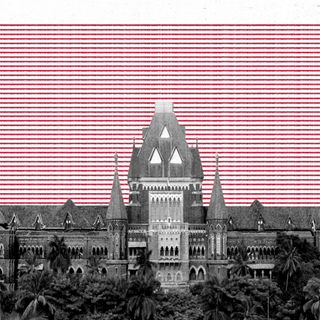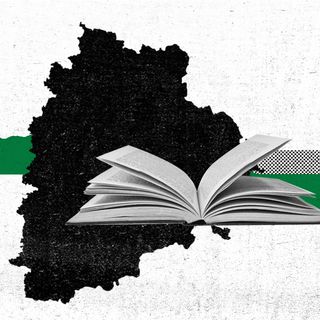
Govt Meets Dalit Activists’ Recommendations for Preventing Caste‑Based Violence With Silence
The critical recommendation for the central government was to recognize Dalit women and girls as a distinct social category.

The National Council of Women Leaders (NCWL), in collaboration with Dalit Human Rights Defenders Network, Equality Now, and Equality Labs, released a list of recommendations on how governments can tackle caste-based sexual violence. Union Government bodies and 15 state governments were among the recipients. Two weeks later, however, government bodies have not responded to the same. The only exception was from the Maharashtra Chief Minister’s Office, who responded with an acknowledgment.
The lack of response highlights how the relationship between sexual violence and caste remains poorly understood and rarely addressed.
“The government apathy and lack of response to our recommendations are disheartening. However, we will continue to raise our demands and ensure that our voices are never stifled again,” Manjula Pradeep, National Convener of NCWL, told The Swaddle.
The NCWL is a body that constitutes a coalition of women leaders from marginalized communities working at the grassroots level.
The recommendations followed a month-long campaign in August this year to spotlight how sexual violence against Dalit women and girls reinforces caste hierarchies. Dominant castes perpetrate crimes, and the police refuse to register complaints in many cases, making the issue systemic. The campaign began when a Brahmin priest raped and murdered a 9-year old Dalit girl in New Delhi. However, the incident merely represents the tip of the iceberg when it comes to caste-based sexual violence.
Related on The Swaddle:
“Every day, around 10 Dalit women and girls are raped in this country. The government needs to step up and undertake systemic reforms to end this epidemic of caste-based sexual violence that we have been living with for centuries,” Pradeep added.
The critical recommendation for the central government was to recognize Dalit women and girls as a distinct social category. Others include improving data and research into caste-based sexual violence, improving rehabilitation, and fast-tracking cases, among others. Broadly, they aim to address dominant caste impunity and state complicity and improve existing redressal and prevention measures.
“Our recommendations are aimed at improving government policies and responses to caste-based sexual violence to ensure that impunity for offenders is addressed. This includes better police accountability, limiting community intervention in cases of sexual violence, and combating the intersectional forms of discrimination experienced by Dalit women and girls when accessing the criminal justice system,” Divya Srinivasan, Equality Now’s South Asia Consultant, told The Swaddle.
“There also needs to be enhanced resourcing and utilization of existing funds for sexual violence prevention and response programs to address issues at the grassroots.”
In its campaign, the NCWL highlighted the prevalence of caste-based sexual violence and the abysmal state support on the issue. According to data from the National Crime Records Bureau 2020, the police disposed of, quashed, or stagnated investigations of around 75% of all rape cases involving Dalit girls and women.
The campaign also pointed to Child Rights Commissions’ failure to prevent and protect increasing crimes against minor Dalit girls. 57% of the 70 case studies that NCWL researched constituted minors, according to campaign data. In addition, the campaign identified five themes of caste-based sexual violence. These are: survivors often know perpetrators, sexual violence is a tool to deny Dalit women’s agency, young girls are disproportionate targets, technology plays a role in fuelling casteist power dynamics, and the justice system fails Dalit women and girls.
Related on The Swaddle:
The Dalit Caste Identity of Hathras Victim Is Vital to Recognizing Her Rape as a Casteist Crime
The impunity with technology’s aid, in particular, was an important theme. The campaign delved into how blackmail — involving videos of gang rapes — helps perpetrators maintain their impunity and render survivors powerless to act. It also enables perpetrators to intimidate and silence families. The police, too, deliberately discourages families from filing FIRs in several cases.
So far, neither the union nor state governments have addressed sexual violence through a caste lens. In the legal system, Dalit women and girls occupy a unique place. They are subsumed under the ‘Dalit’ category or the ‘women’ category separately. In other words, Dalit women and girls face unique challenges while occupying the intersection of caste and gender, which serve as a blind spot within the law.
As a result, the police respond to caste-based sexual violence with apathy or hostility. Barriers in accessing justice include delays in filing FIRs, not invoking the SC/ST Act not to recognize the crime as casteist, filing counter-cases against survivors’/victims’ families, and so on, according to activist groups’ joint submission to the UN Special Rapporteur for Violence Against Women.
“We hope that the central and state governments will commit to drastically improving police and prosecutorial responses to cases of sexual violence against Dalit women and girls,” Srinivasan added.
Rohitha Naraharisetty is a Senior Associate Editor at The Swaddle. She writes about the intersection of gender, caste, social movements, and pop culture. She can be found on Instagram at @rohitha_97 or on Twitter at @romimacaronii.
Related


In a First, Bombay HC Issues Guidelines to Protect Identity in Workplace Sexual Harassment Cases
